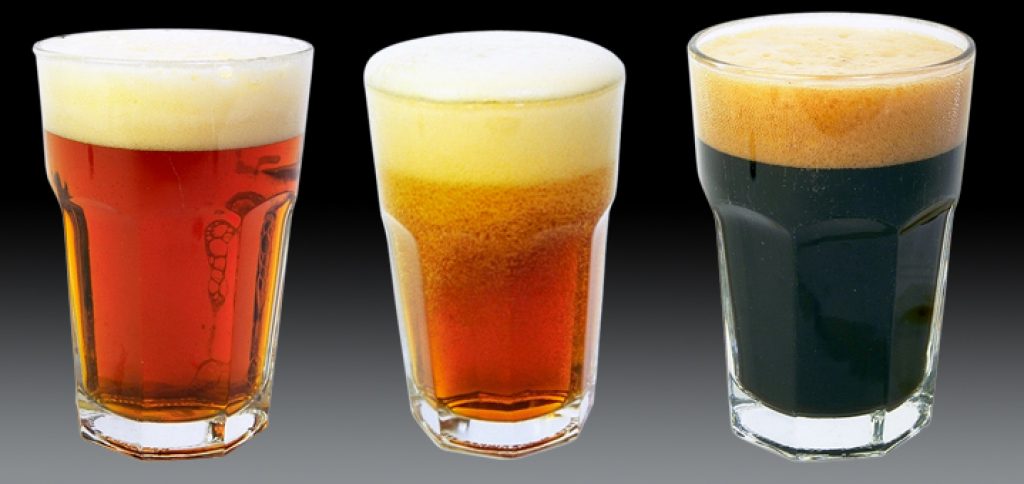7 top tips for homebrewers

To produce your own beer at home, it’s not just the right equipment that will make all the difference – you also need a good amount of expert knowledge and a dash of courage. These tips for homebrewers will make it virtually impossible for anything to go wrong.
Since an increasing number of people have been discovering a passion for beer, the homebrewing trend has really taken off all over the world. “Do It Yourself” is the motto of many beer lovers who create their own, sometimes unusual concoctions in their kitchens, garages and cellars. As such, brew kettle boilers, mini brew kettles and fermenting bins are currently the biggest sellers in all homebrew stores. Internet forums for novice brewers are seeing membership numbers skyrocket and brewing courses are now all the rage. Numerous competitions all over the world that are reserved for delicious brews created by homebrewers are also encouraging more and more people to take up the hobby. That said, the entire process involved before you can pour a high-quality beer into your glass is a lot more complicated than you might think. Here are seven useful tips to help you:
1. Literature for homebrewers
As interest in homebrewing has grown, so too has the number of related books available on the market. Any newcomers to the hobby should get themselves some decent literature, read it thoroughly and note down the most important points before attempting their first batches. The following books are particularly well-suited for those just starting out: “The Complete Joy of Homebrewing” by Charlie Papazian, “The Complete Guide to Brewing Delicious Beer” by Randy Mosher, and “Brewing Classic Styles: 80 Winning Recipes Anyone Can Brew” by Jamil Zainasheff and John Palmer.
2. Equipment
If you want to make your own beer, it will be essential for you to have all the right equipment. But before you invest in anything, you should think long and hard about what you’re going for and do your research – after all, prices vary considerably depending on the different equipment involved. There are now many brewing sets available, such as “Big Mouth Bubbler”, “Go Pro” and the “Micru Brew” kit, all of which make the process much easier. However, anyone who really wants to get involved in the entire process themselves needs to get the proper pots. These days, there are plenty of options to choose from – from 30-liter brew kettle boilers to professional kettles. The most famous brands here are Gigawort, Blichmann and Speidel. Just make sure that you compare prices online.
3. Recipe
There’s no use in jumping the gun and getting stuck in straight away. Every homebrewer has to first determine what to make: what type of beer, what alcohol content and what kind of taste. But there’s no need to worry – everything from lager, pilsner and wheat beer to IPA, stout and porter can be brewed at home. Homebrewers can find various recipes and tips for creating their own brew on platforms such as homebrewersassociation.com and in specialist literature. Plus, you can personalize ready-to-go recipes by adding hops and malt.
4. Ingredients
If you want to brew a good, aromatic beer, you should use only the best raw materials and never skimp on them. Homebrewers can order the necessary ingredients on specialist websites such as northernbrewer.com, homebrewsupply.com and homebrewusa.com. And if you want a really flavorful beer, always try adding a little more of your favorite ingredients to the kettle than the standard recipe calls for.
5. Cleanliness
Clean conditions need to be ensured throughout the entire process in order to prevent contamination of the beer. Kettles, cooking spoons, bottles and all other equipment should be thoroughly sterilized with boiling water beforehand and you should prioritize absolute cleanliness throughout the entire brewing process.
6. Daily tasks
For anyone brewing for the first time, a brewing day can be a long day. Homebrewers obviously need to have a passion for the end product, but they also need to have a lot of time and, above all, patience. It makes sense to take longer breaks for refinement purposes, and the hops need to be cooked for a long time.
7. Enjoyment
To make sure you have even more fun while brewing, don’t stand next to the kettle stirring all on your own – invite some friends and family to join in. And never forget that there should always be enough beer in the fridge – other kinds ultimately serve as a constant source of inspiration and taking a swig now and then makes the craft brewing process an altogether more pleasurable experience.
Good luck with creating your own creative brews!
